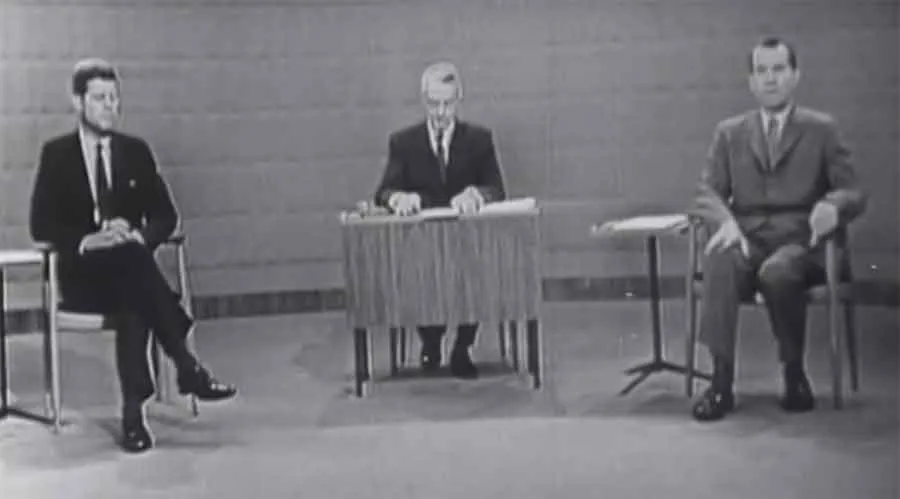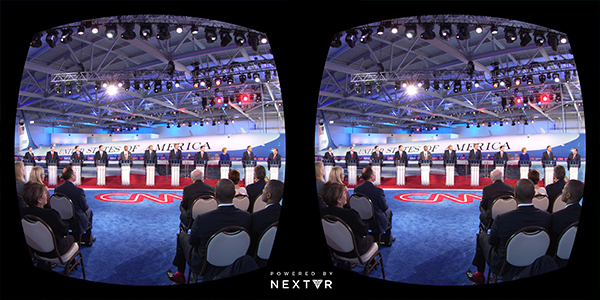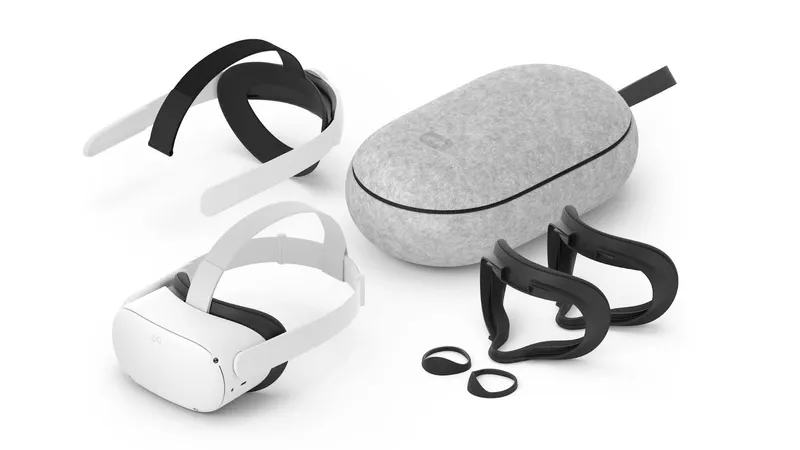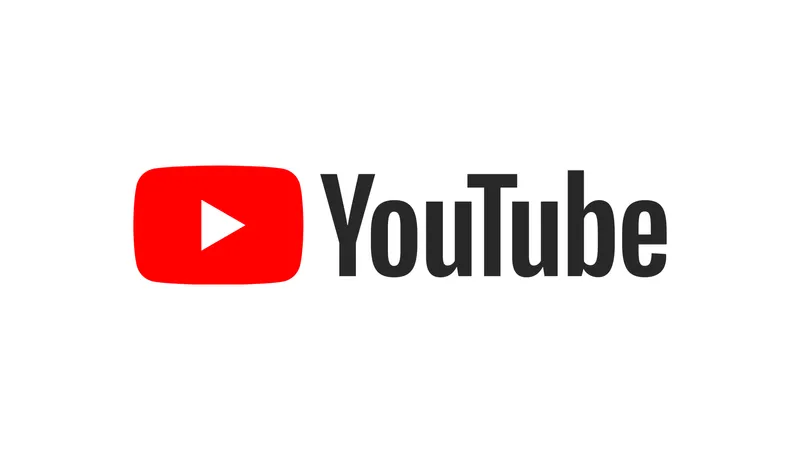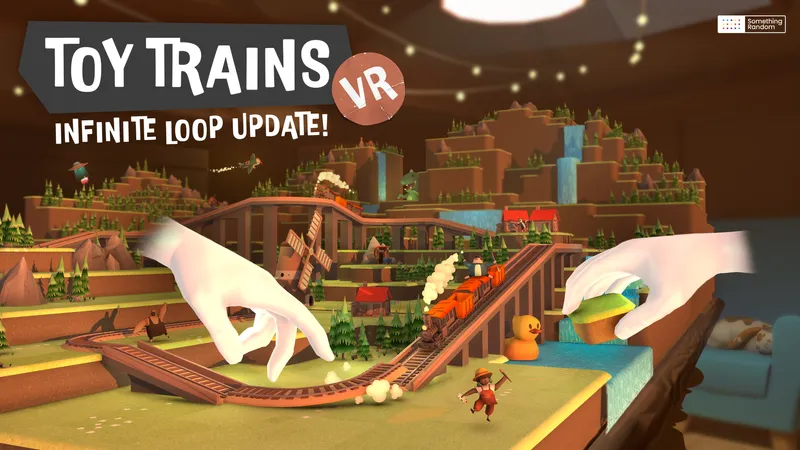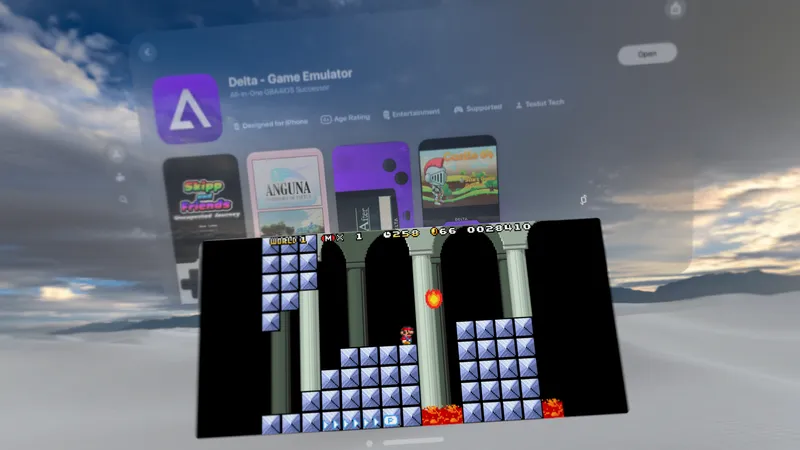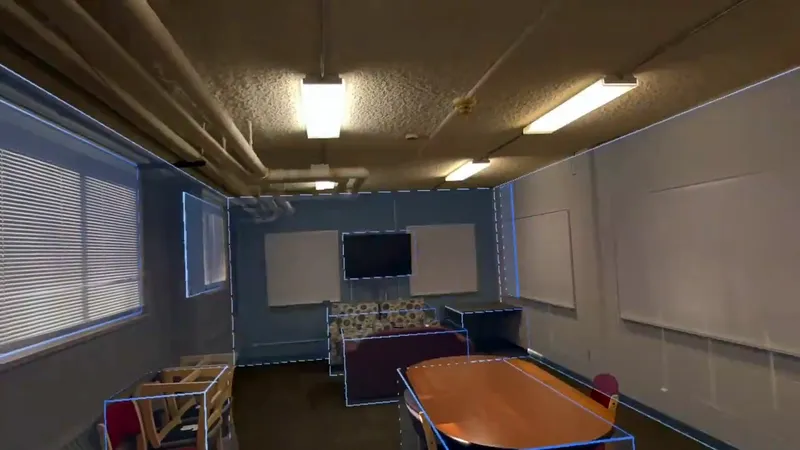CNN is partnering with Laguna Beach-based live-streaming panoramic video company NextVR to provide live coverage of the Democratic Presidential Debate on Oct. 13. If you have a Samsung GearVR, you can download the NextVR app from the Oculus Store and watch it live.
The first Republican debates have featured more than a dozen candidates while the Democratic one should have about five. It is a notable first in VR to stream a live news event this way. NextVR recorded the last Republican debate but didn’t stream it widely.
Eventually, watching a presidential debate in VR could be far superior to watching one on a traditional TV. Picture the field of candidates wrapped around you in a semicircle as if each one is speaking directly to you. In VR, each one can be given equal airtime. Not only do you watch as each candidate speaks but you could turn your head to watch the reactions of other candidates as they listen to what the current speaker is saying. Instead of a newsroom producer and the quick cuts of television cameras deciding who you will watch, at any given moment your head movements would decide which candidate gets the attention. You could understand much more of the context of the debate and pick up on tiny social cues that are left out of the televised version. Is a candidate being rude and talking over fellow candidates by cutting them off? Is another candidate sneering when the candidate that is speaking talks about a particular policy proposal? You as the viewer could be empowered to make a much more informed opinion about the various candidates based on a wealth of information made available to you from the vantage point of a panoramic video.
Famously, in 1960 John F. Kennedy and Richard Nixon took part in the first televised debate. Their differing appearances in front of the camera marked a turning point in politics as Kennedy is said to have won the debate by viewers who watched it on television while those who heard it on the radio said Nixon performed better. The history books attribute the differing perceptions to Nixon having just overcome the flu and looked sickly on television while Kennedy appeared strong.
With access to additional information from a debate in VR, the medium could represent another pivotal moment in changing how candidates are perceived. Polls performed after the debate from those who watched it in VR and those who watched it on television could show a new gap in perception. In fact, because this is VR and not television, companies involved in delivering content have access to far more telling analytics. Why wait for the polls? These companies could theoretically track how many seconds each candidate received the attention of viewers, and at which points. Suppose you shake your head or nod it while inside VR — those gestures too could be recognized. It is the nature of VR technology to track head movements and the capability is not out of reach. For example, Election.TV and Kosher.TV are already looking at optimizing political messages using VR.
Read more: How Virtual Reality Will Influence the 2016 Presidential Election
According to NextVR, the company is not planning any behavioral head-tracking with this first-of-its-kind presentation.
Anyone involved in recording or broadcasting debates into VR has a responsibility to take steps to clearly communicate with viewers what sort of tracking might be done of their behavior and with whom it might be shared. Not to be overly dramatic about it, but the future of democracy may depend upon it.
Note that by the time the Democratic and Republican candidates face off next year in debates against one another there should be many more VR headsets in homes than there are today.

